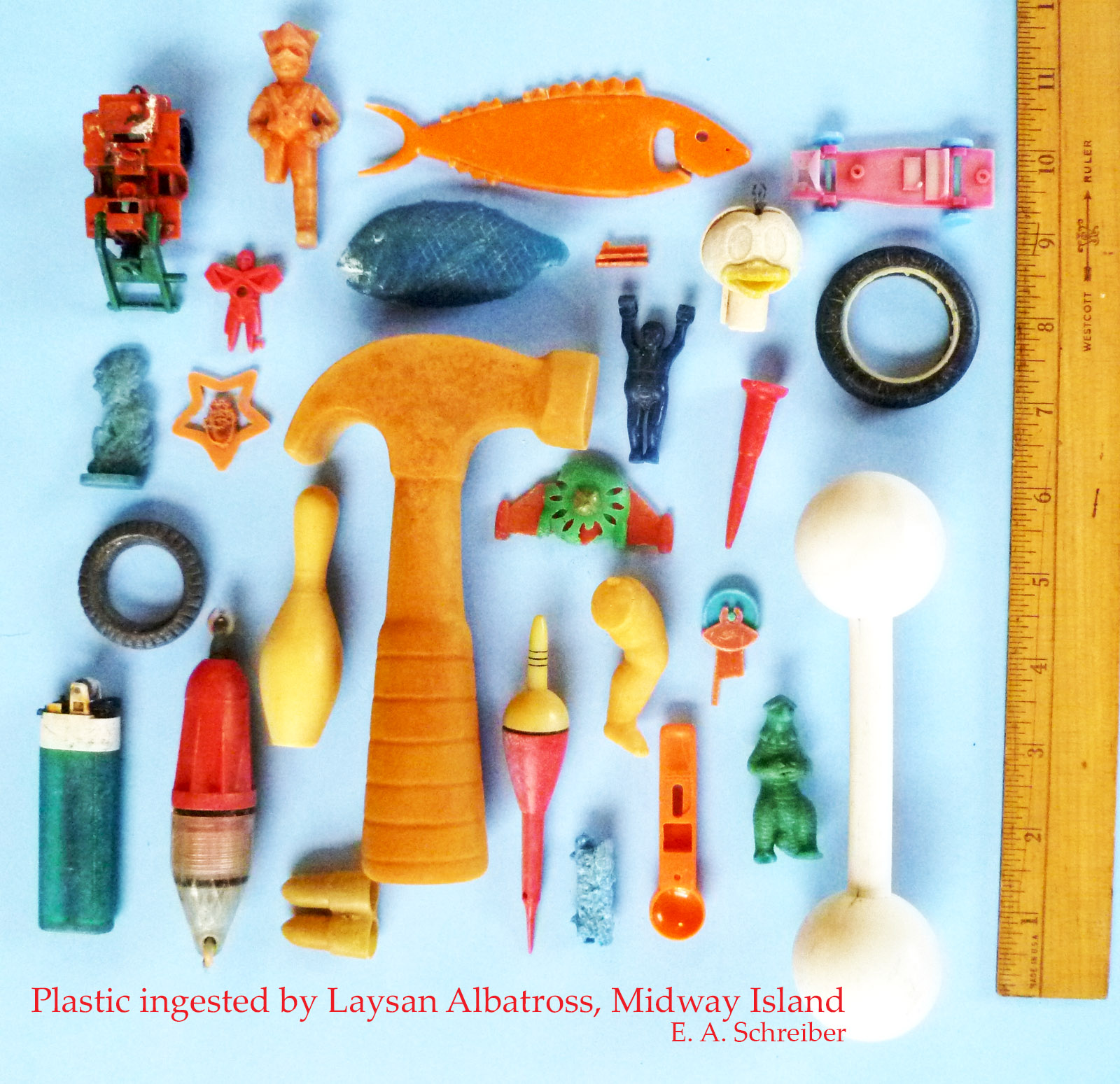
Limin Wang (College of Life Sciences, Hebei Normal University, Shijiazhuang, China) and colleagues have reviewed open-access the effects of plastic pollution in birds (including albatrosses and petrels) in the journal Avian Research.
The paper’s abstract follows:
Plastic waste and debris have caused substantial environmental pollution globally in the past decades, and they have been accumulated in hundreds of terrestrial and aquatic avian species. Birds are susceptible and vulnerable to external environments; therefore, they could be used to estimate the negative effects of environmental pollution. In this review, we summarize the effects of macroplastics, microplastics, and plastic-derived additives and plastic-absorbed chemicals on birds. First, macroplastics and microplastics accumulate in different tissues of various aquatic and terrestrial birds, suggesting that birds could suffer from the macroplastics and microplastics-associated contaminants in the aquatic and terrestrial environments. Second, the detrimental effects of macroplastics and microplastics, and their derived additives and absorbed chemicals on the individual survival, growth and development, reproductive output, and physiology, are summarized in different birds, as well as the known toxicological mechanisms of plastics in laboratory model mammals. Finally, we identify that human commensal birds, long-life-span birds, and model bird species could be utilized to different research objectives to evaluate plastic pollution burden and toxicological effects of chronic plastic exposure.”
Reference:
Wang, L., Nabi, G., Yin, L., Wang, Y., Li, S., Hao, Z. & Li, D. 2021. Birds and plastic pollution: recent advances. Avian Research doi.org/10.1186/s40657-021-00293-2.
John Cooper, ACAP Information Officer, 11 November 2021

 English
English  Français
Français  Español
Español